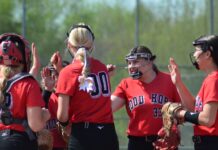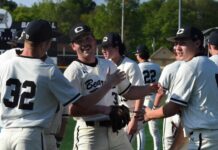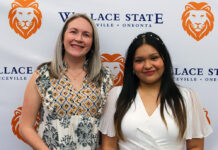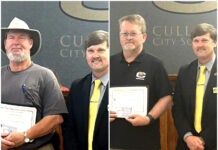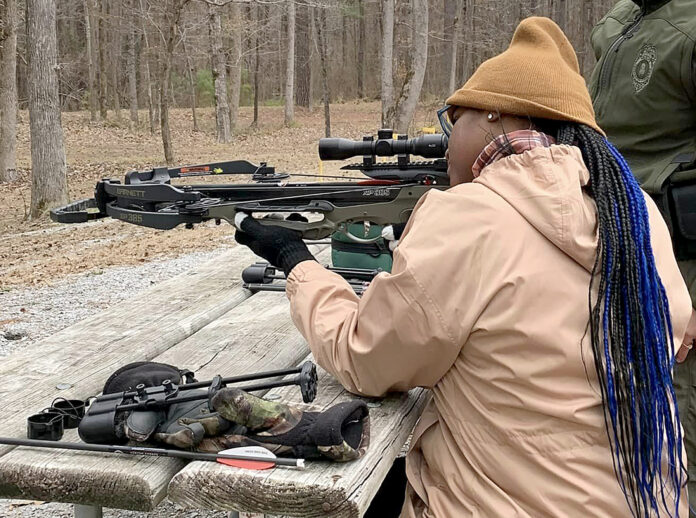
MONTGOMERY, Ala. – The Alabama Department of Conservation and Natural Resources (ADCNR) is making every effort to convey the message that our state’s great outdoors is for everyone.
“The Department tries to create an atmosphere that is safe, welcoming and accommodating to all individuals,” said Justin Grider, ADCNR’s Wildlife and Freshwater Fisheries (WFF) Division R3 coordinator.
Grider and Billy Pope, ADCNR’s communications and marketing director, were analyzing license sales data and discovered an encouraging trend. License sales increased across the board, and license sales for people of color had increased significantly since 2019.
Grider said many people realized the outdoors was a safe place to spend recreation time during the COVID pandemic.
“People who had never enjoyed the outdoors discovered the outdoors during the pandemic,” Grider said. “People who had lapsed and hadn’t been outdoors in years were able to spend some time outdoors. I also think people who relied on meat sourced from grocery stores were made aware of how fragile the supply chain could be, so they turned to learning about hunting to provide that source of organic protein. That led to a spike in interest with new audiences to include everyone.
“The cool thing about it is that even since the pandemic, those percentage numbers have remained high. It’s not like folks just came in 2020. They came and realized what our natural resources have to offer and realized the Department caters to everyone.”
The license data also provided the geographical areas where most of the hunting and fishing licenses were sold. The Department then provided numerous outreach programs in the areas that were not as highly represented in that data.
“We looked at the data and focused on the areas that needed attention, where people hadn’t previously interacted with the Department,” Grider said. “That included the Adult Mentored Hunting Program, the Firearms 101 Program, the trapping program or the Go Fish! Alabama Program and many other community engagement efforts.
“We tried to meet people where they were. In doing so, we looked to staff those events and use volunteers who were representative of people from the communities so those individuals could see themselves doing those activities and have somebody to look up to in that role.”
Funds generated from the sale of hunting and fishing licenses are crucial for supporting ADCNR’s Wildlife and Freshwater Fisheries Division. License sales for outdoors activities provide a vital funding source through the Pittman-Robertson Act, where an excise tax on firearms and ammunition is collected and then divided to states according to their number of license sales and the size of their state.
R3 is a national program that addresses ways to boost hunting and fishing participation – Recruit, Retain, Reactivate. Grider said he has proof that those outreach efforts have been successful.
“We have several examples of individuals who came to those workshops and are now volunteering, helping as mentors,” he said. “We are increasing our representation from those previously underserved audiences. We can now connect with them and develop relationships.”
Grider said it seems the portrayal of the nation in the news media focuses on polarization and tension between groups, but he doesn’t think that picture is completely accurate.
“When you zoom into real-world examples, like one of our workshops or outreach events, that couldn’t be farther from the truth,” he said. “We have people from all over the world with different backgrounds, different belief systems, different political opinions. All those things are set aside to focus on doing something outdoors, whether it be target shooting, hunting, fishing, trapping or many of the other outdoor recreation activities. People can put those differences aside and bond on those common themes. It’s been incredible. I think it speaks to the healing capacity the outdoors offers. What it does for your health. And it builds foundations for building relationships with people who may not look like you, think like you or act like you.
“We will keep seeking partnership opportunities with user groups who are interested in being involved with the Department and have an interest in outdoor recreation. We want to be available to everyone. It’s an open-door policy. We have staff who are great at making those connections.”
Some of those partnerships include outreach events at the Montgomery Biscuits and Huntsville Trash Pandas minor league baseball parks. Advertising sponsorships include Auburn University Football as the Countdown to Kickoff radio show title sponsor and Troy Sports Properties, providing in-game and radio advertising for football, basketball, and baseball games.
“By being represented at these events, we can invite them to the workshops and outreach events and have face-to-face interactions, which increases the likelihood that people will get involved in workshops, engage with the staff and be comfortable reaching out to the Department for information about hunting, fishing, hiking, kayaking or target shooting,” Grider said. “Again, it’s meeting people where they are and making those connections. I’m really proud of our staff, volunteers and partners and their willingness to get involved, step outside of their comfort zones and try new things. It really speaks to the outdoors as being a common place where everybody can meet in the middle.”
The outdooralabama.com website also added Google Translation to increase access to new audiences to highlight the numerous outdoors facilities, like shooting ranges, the most archery parks in the nation, some of the most beautiful parks in the nation in the Alabama State Parks System, and saltwater fishing opportunities, including the Gulf State Park Pier and Fort Morgan Pier.
Sgt. Bill Freeman, WFF Conservation Enforcement Officer, said even if you take the COVID spike out, the license sales to people of color have seen a 17% increase since 2019.
“I think a lot of our outreach efforts have helped to contribute to that,” Freeman said. “We’ve really done a lot with our HBCUs (historically black colleges and universities) with our mentored programs. I really think they’re seeing our Department in a different light. Our programs are welcoming and making access easier for all people.”
Freeman cited an example, a fishing event held at the lake at Gateway Park Golf Course in Montgomery
“We planned that event with Montgomery Parks and Recreation because more minorities had access,” he said. “It was a huge success. I think these events are starting to turn the tide in terms of minority participation.
“And I recently attended a seminar among female hunters and anglers, and providing protein for the family was very high on their lists. Our younger generation is much more conservation-minded and wants to know where their food comes from.”
Freeman, who has been presented several diversity awards from SEAFWA (Southeastern Association of Fish and Wildlife Agencies), said that theme was evident at a recent mentored deer hunt at Oak Mountain State Park with a group of students from Alabama A&M and Tuskegee University.
“They were really interested in the meat-processing aspect of it,” he said. “They’re hunting but for different reasons than my generation, the baby boomers. The mentored hunting program is a such a great program, because all these kids have never hunted or fished. But once they do it, they’re so enthusiastic and happy. They have a different outlook on what they actually thought hunting was. They are more nature minded. They like being in nature. They understand why we’re hunting. We’re not hunting for trophies. We’re hunting to help manage a deer population. If you present it like that, they get it.”
Freeman said another mentored hunt was planned for Feb. 3-4 in Bullock County with A&M, Tuskegee and Auburn University.
“I think we had 11 hunters at Oak Mountain,” he said. “Now we’re getting overwhelmed with students who want to sign up to learn about our natural spaces. They are just like sponges. They care about the water, the land and what they’re eating.
“I can’t say enough about our programs, and I can’t say enough about the R3 program, because I’m seeing it work. We’re reaching audiences we’ve never reached before. We’re going to the Black Belt region with fisheries education. We went to Perry County, where people had never seen a game warden and didn’t know anything about our Department or what we do. I’m very excited about this work.”










